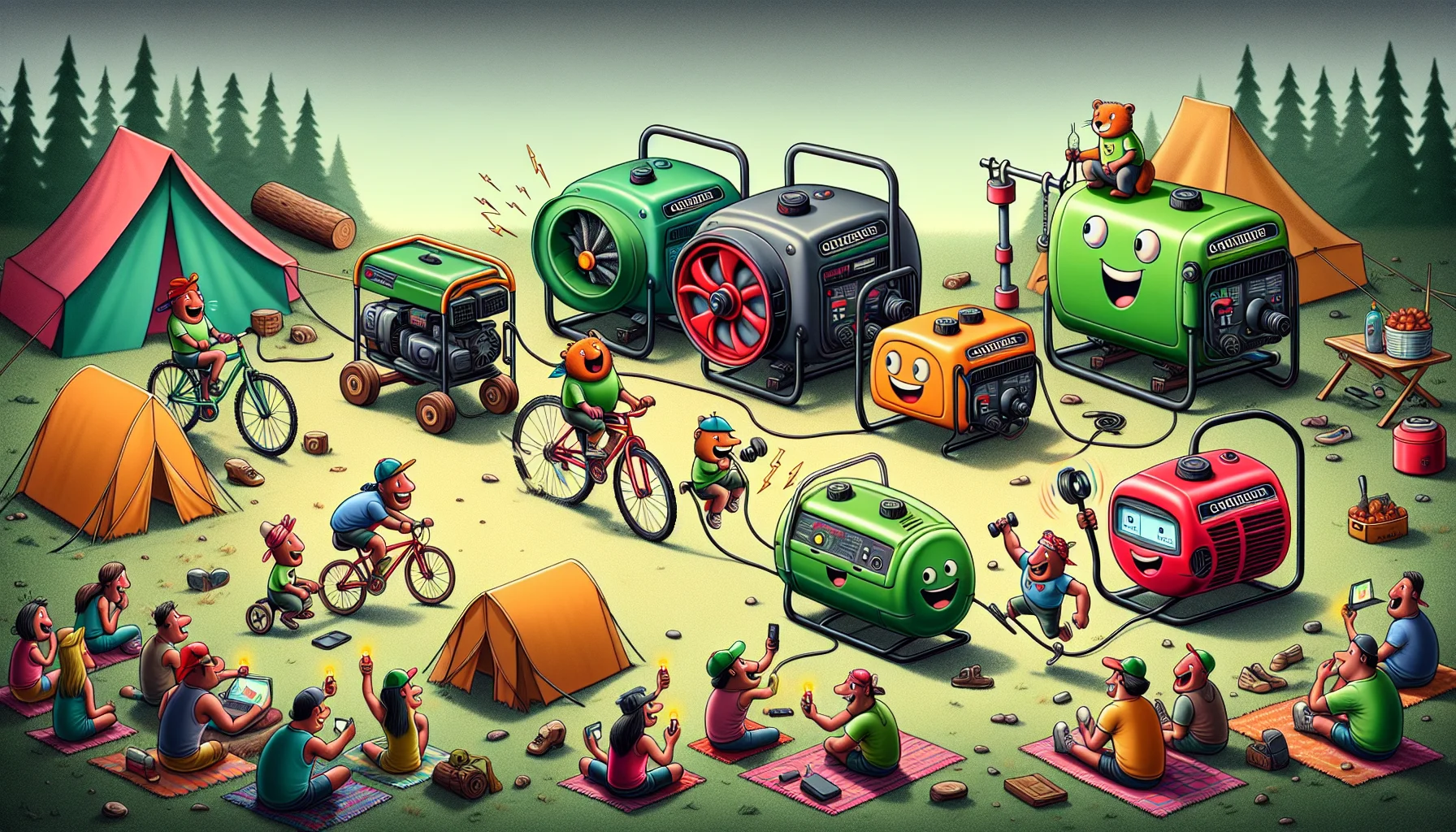Best Portable Generators Quiz
Test Your Knowledge
Question of
Best Portable Generators for Reliable Power Anywhere
Portable generators have become indispensable tools for ensuring access to electricity in a variety of settings, from leisurely camping trips to critical emergency situations and bustling outdoor events. Their versatility and ease of use make them a go-to solution for anyone in need of reliable power away from traditional sources. Whether it's for lighting, cooking, or powering essential devices, portable generators can make all the difference in enhancing outdoor experiences and providing peace of mind during unforeseen power outages.
Top 5 Portable Generators of the Year
- Honda EU2200i - A compact, fuel-efficient generator that's known for its quiet operation and reliability. Ideal for camping, tailgating, or backup power.
- Yamaha EF2000iSv2 - Offers impressive power and portability in a lightweight design. It's extremely quiet and fuel-efficient, making it perfect for outdoor activities.
- Westinghouse WGen7500 - A powerful option with an electric start. It's known for its durability and long runtime, making it suitable for emergencies or heavy-duty tasks.
- Generac GP2200i - Offers great value with its quiet operation and portability. It features an economy mode for improved fuel efficiency, making it a great choice for outdoor adventures.
- Champion Power Equipment 76533 - Versatile and reliable, this generator can run on gasoline or propane. It features an electric start and is well-suited for RV use, camping, or backup power.
How to Choose the Right Portable Generator
When selecting a portable generator, it's crucial to consider several key factors to ensure it meets your needs. The power output is the most significant aspect, as it determines how many appliances or tools you can run simultaneously. You'll need to calculate the total wattage of the devices you plan to power to choose a generator with adequate capacity. The fuel type is another important consideration, with options including gasoline, diesel, propane, and even solar-powered models. Each fuel type has its advantages and disadvantages in terms of availability, storage, and running costs. Portability is also a critical factor; the generator should be easy to move around, especially if you plan to use it in various locations. Look for features such as wheels and handles that enhance mobility. By carefully evaluating these factors, you can select a portable generator that best suits your requirements.
Benefits of Owning a Portable Generator
- Emergency Power Supply - Ensures you have electricity during power outages.
- Convenience for Outdoor Activities - Provides power for camping, tailgating, and other outdoor events.
- Backup Power for Small Businesses - Keeps operations running during unexpected power interruptions.
Safety Tips for Using Portable Generators
When operating a portable generator, it's crucial to prioritize safety to prevent accidents and ensure efficient functionality. One of the most important safety measures is ensuring proper ventilation. Generators emit carbon monoxide, a colorless, odorless gas that can be deadly if inhaled in enclosed spaces. Always operate the generator outdoors and away from windows, doors, and vents to prevent carbon monoxide poisoning. Regular maintenance is also essential. Check the generator before use, ensuring it's in good working order, and follow the manufacturer's guidelines for routine upkeep. Safe fuel storage is another critical aspect. Store fuel in approved containers, away from living areas, and never refuel the generator while it's running or hot to prevent fires. Following these safety tips can help protect you and ensure your portable generator serves you well when you need it.
Portable Generator Maintenance and Care
- Regularly check and change the oil to ensure smooth operation.
- Inspect the air filter and clean or replace it as needed to prevent engine damage.
- Always use fresh fuel with a stabilizer to avoid starting issues.
- Run your generator at least once every three months to keep the engine parts lubricated.
- Keep the generator clean and dry, and store it in a covered location to protect it from the elements.
- Check the spark plug regularly for signs of wear and tear and replace it if necessary.
- Ensure the generator is running in a well-ventilated area to prevent carbon monoxide poisoning.
- Inspect the power cords for any signs of wear or damage and replace them if needed.
- Always follow the manufacturer’s maintenance schedule and guidelines for the best results.
- Before long-term storage, drain the fuel from the generator to prevent the build-up of gum and varnish.
Comparative Analysis of Top Portable Generators
| Model | Power Output | Fuel Efficiency | Noise Level (dB) | Price |
|---|---|---|---|---|
| Generator A | 2200W | 0.1 gallons/kWh | 58 | $500 |
| Generator B | 1800W | 0.08 gallons/kWh | 55 | $450 |
| Generator C | 2000W | 0.12 gallons/kWh | 60 | $480 |












